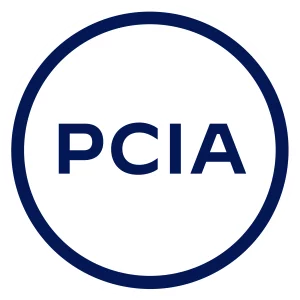As the high estate tax exemption amount included in the Tax Cuts and Jobs Act (TCJA) is set to expire for the 2026 tax year, it is essential to reassess wealth transfer strategies to protect family legacies. The current estate tax exemption allows married couples to shield more than $27 million from federal estate taxes, but this figure will dramatically drop down to approximately $10 million per couple without new legislation being enacted. This looming change means that many families with high-value assets who previously did not face estate taxes may now be vulnerable.
Estate values can increase over time, and without proper planning, appreciating assets could push an estate’s value above the reduced exemption threshold. This could result in a substantial portion of the estate being subject to taxation, potentially reducing the wealth passed on to future generations. By engaging in estate tax planning now, individuals can potentially work to mitigate upcoming tax liabilities, helping help secure financial legacies, prevent unexpected tax burdens, and provide a buffer of protection for heirs and beneficiaries.
Below we are some strategies that may help some people navigate these upcoming changes. By understanding wealth transfer options, individuals can take proactive steps with the help of financial advisors, tax professionals, and estate attorneys to potentially reduce tax liability when the tax law sunsets.
- Recapture Planning Through Life Insurance
Recapture planning using life insurance can be an effective tool by providing the funds needed for heirs to be able to cover the estate taxes which will be due when they inherit. The key purpose of using life insurance in this context is to offer beneficiaries tax-free funds that can be used to pay estate taxes, thus preventing them from having to liquidate other assets. This can be especially beneficial for families with illiquid assets such as real estate or business interests, which might otherwise need to be sold to pay the inheritance taxes.
In some cases, life insurance policies can be placed within special trusts, such as an irrevocable life insurance trust (ILIT). This trust structure can help ensure the proceeds from the insurance policy do not count toward the taxable estate, further helping reduce the potential tax burden. By using this approach, families can sometimes shield their estates from higher taxes than they would have owed without recapture planning.
- Utilizing the Step-Up in Basis
The step-up in basis is a beneficial tax provision that adjusts the value of inherited assets to their fair market price at the time of the original owner’s death. This means that when beneficiaries inherit assets such as real estate or stocks, the tax basis—the value used to determine any capital gains tax—gets reset to the asset’s current market value, potentially reducing tax liability when the asset is sold later.
For instance, consider an individual who purchased a home for $300,000, which appreciates to $600,000 at the time of their passing. When the heir inherits the property, their tax basis becomes $600,000. If they sell it for that same amount, they owe no capital gains tax, as there is no profit over the stepped-up basis. This adjustment can be particularly advantageous for appreciated assets, allowing heirs to potentially sidestep substantial capital gains taxes that would have been applicable had the original owner sold the property before death.
The step-up in basis applies not only to real estate but also to various financial assets, including stocks and bonds. By inheriting assets at their current market value, beneficiaries can help minimize tax liabilities, making this strategy a potentially effective tool in estate planning.
- Strategic Asset Management and Transfer Techniques
Asset management and transfer techniques encompass a range of strategies in financial planning, particularly regarding beneficiary designations and asset location.
- Beneficiary designations
Beneficiary designations are crucial for insurance policies and retirement accounts, such as IRAs, 401(k)s, Roth IRAs, because those designations take precedence over estate planning documents. In other words, if you get divorced, a family member passes away, or you marry someone new, be sure you change your beneficiaries on each account as well as your estate plan.
- Inherited traditional IRA account RMD requirements
Each type of account also has specific rules, which changed recently due to the SECURE Act and its 2.0 iteration. For example, non-spousal inherited traditional IRAs are subject to annual RMDs (required minimum distributions) which are now based on the original owner’s RMD timeline rather than the inheritor’s (which were much longer and therefore used to be called “stretch IRAs”). RMD amounts must be withdrawn every year and ordinary income taxes on those amounts paid by the inheritor. Additionally, the accounts must be completely emptied and closed, with income taxes paid on the entire balance within 10 years of inheritance.
Depending on the heir’s income levels, this can throw some beneficiaries into unanticipated higher tax brackets, reducing the amount of the inheritance significantly.
- Roth IRAs, no RMD requirements
In contrast, inherited Roth IRAs allow for tax-free growth and no required withdrawals, making them particularly advantageous for heirs, because even though non-spousal heirs must also empty and close accounts within 10 years of inheritance, taxes won’t be due as long as all IRS rules are followed.
- New rules for inherited traditional 401(k) accounts
New rule for inherited 401(k) accounts starting in 2024 and clarified by the IRS and Department of the Treasury in July: “Beginning in 2024, SECURE 2.0 allows a beneficiary to elect to be treated as the “employee” for RMD purposes. Prior, the beneficiary could either roll over the IRA into their own or could take it in an inherited IRA.” This means the heir to a 401(k) account could leave the money in place in the company 401(k) plan and follow the RMD schedule of the original account owner—meaning they will still owe income taxes, potentially throwing them into a higher bracket. The 10-year rule for emptying and closing the account will still apply except for beneficiaries younger than age 10—their clock starts when they turn 21.
The industry has recently asked the government for more time to adjust and update their systems in order to be able to implement this monumental change.
- Asset location
By considering the tax rules which apply to each type of account, asset location is a strategy that can help align investment strategies with estate planning goals. This approach involves strategically placing different types of investments in either taxable or tax-deferred accounts to help maximize after-tax returns and help minimize the effect tax liability will have on heirs.
Creating a tax plan that best suits your situation—especially with the sunsetting tax laws on the horizon—can be an overwhelming task to undertake on your own. Remember, we are here to help with the complexities of financial planning while keeping your financial goals in focus, and we can partner with your CPA and estate attorney to help you with advanced planning strategies. Give Jason Noble a call today at (843) 743-2926 or call Prime Capital Financial Wichita at (316) 669-9413 to take the first step.
This article is for general information only and should not be considered as financial, tax or legal advice. Prime Capital and its associates do not provide legal or tax advice. Individuals should consult with an attorney or professional specializing in the fields of legal, tax, or accounting regarding the applicability of this information for their situations.
Advisory products and services offered by Investment Adviser Representatives through Prime Capital Investment Advisors, LLC (“PCIA”), a federally registered investment adviser. PCIA: 6201 College Blvd., Suite#150, Overland Park, KS 66211. PCIA doing business as Prime Capital Financial | Wealth | Retirement | Wellness.
Sources:
https://www.ml.com/articles/estate-gift-tax-exemption-sunset.html
https://www.modernlife.com/article/plan-for-the-2026-estate-gift-tax-sunset
https://www.investopedia.com/terms/r/recapture-provision.asp
https://www.investopedia.com/terms/s/stepupinbasis.asp
https://www.investopedia.com/articles/tax/08/asset-location.asp
101124009 JG





